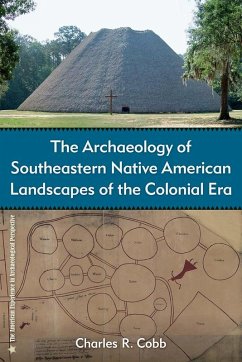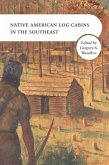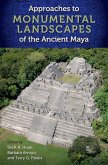Honorable Mention, Southern Anthropological Society James Mooney Award
Native American populations both accommodated and resisted the encroachment of European powers in southeastern North America from the arrival of Spaniards in the sixteenth century to the first decades of the American republic. Tracing changes to the region's natural, cultural, social, and political environments, Charles Cobb provides an unprecedented survey of the landscape histories of Indigenous groups across this critically important area and time period.
Cobb explores how Native Americans responded to the hardships of epidemic diseases, chronic warfare, and enslavement. Some groups developed new modes of migration and travel to escape conflict while others built new alliances to create safety in numbers. Cultural maps were redrawn as Native communities evolved into the groups known today as the Cherokee, Choctaw, Creek, Chickasaw, Catawba, and Seminole peoples. Cobb connects the formation of these coalitions to events in the wider Atlantic World, including the rise of plantation slavery, the growth of the deerskin trade, the birth of the consumer revolution, and the emergence of capitalism.
Using archaeological data, historical documents, and ethnohistorical accounts, Cobb argues that Native inhabitants of the Southeast successfully navigated the challenges of this era, reevaluating long-standing assumptions that their cultures collapsed under the impact of colonialism.
A volume in the series the American Experience in Archaeological Perspective, edited by Michael S. Nassaney
Native American populations both accommodated and resisted the encroachment of European powers in southeastern North America from the arrival of Spaniards in the sixteenth century to the first decades of the American republic. Tracing changes to the region's natural, cultural, social, and political environments, Charles Cobb provides an unprecedented survey of the landscape histories of Indigenous groups across this critically important area and time period.
Cobb explores how Native Americans responded to the hardships of epidemic diseases, chronic warfare, and enslavement. Some groups developed new modes of migration and travel to escape conflict while others built new alliances to create safety in numbers. Cultural maps were redrawn as Native communities evolved into the groups known today as the Cherokee, Choctaw, Creek, Chickasaw, Catawba, and Seminole peoples. Cobb connects the formation of these coalitions to events in the wider Atlantic World, including the rise of plantation slavery, the growth of the deerskin trade, the birth of the consumer revolution, and the emergence of capitalism.
Using archaeological data, historical documents, and ethnohistorical accounts, Cobb argues that Native inhabitants of the Southeast successfully navigated the challenges of this era, reevaluating long-standing assumptions that their cultures collapsed under the impact of colonialism.
A volume in the series the American Experience in Archaeological Perspective, edited by Michael S. Nassaney
Dieser Download kann aus rechtlichen Gründen nur mit Rechnungsadresse in A, D ausgeliefert werden.









